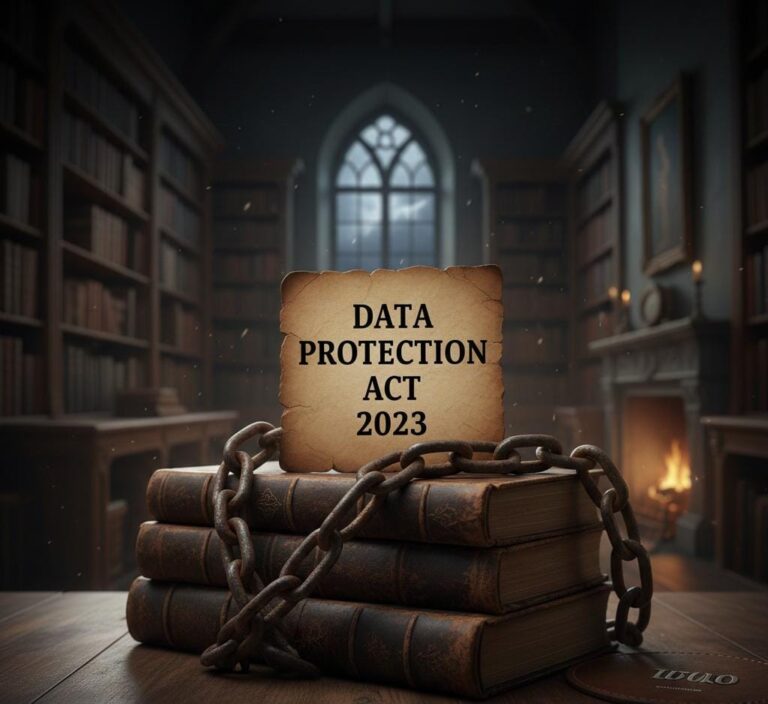Understanding Article 124: The Heartbeat of India’s Highest Court
–By Anshita Chauhan
Introduction
Imagine a country without a referee in its biggest matches—no one to blow the whistle when
things go wrong, no one to make the final call. That’s what a nation without a strong Supreme
Court might look like. In India, the job of this ultimate referee goes to the Supreme Court, and
Article 124 of the Constitution is where it all begins.
Let’s take a walk through what this article really says—without the heavy legal jargon—and
why it matters to every Indian citizen.

What Is Article 124 All About?
At its core, Article 124 is the part of the Constitution that sets up the Supreme Court. Think of
it as the blueprint for the court that sits at the very top of India’s judicial ladder.
It answers important questions like:
Who sits on the Supreme Court?
How are they chosen?
What qualifications must they have?
How long do they serve?
And what happens if they misbehave or become unfit?
The People Behind the Bench: Who Can Become a Supreme Court Judge?
Article 124 says that the President of India appoints the judges of the Supreme Court,
including the Chief Justice of India (CJI). But the President doesn’t just pick someone
randomly — he (or she) consults senior judges to ensure the choice is sound. This keeps the
appointment process fair and balanced.
Now, who can become a Supreme Court judge? According to Article 124, a person must:
Be an Indian citizen,
Have served as a High Court judge for at least 5 years, or
Practiced as a High Court lawyer for at least 10 years, or
Be, in the President’s opinion, a distinguished jurist (basically, someone who really knows
their law!).
This means judges aren’t just chosen based on popularity or connections—they have to be
deeply experienced and knowledgeable in the field of law.
How Long Do They Serve?
Supreme Court judges don’t have a lifelong seat. They can serve until they turn 65 years old.
After that, they retire—though many continue to contribute to law, education, and public
service in other ways.
They can also choose to resign before 65. But if a judge is suspected of serious misconduct or
is no longer capable of doing the job, Article 124 outlines a very strict process for removing
them. This process isn’t easy (and that’s intentional)—it requires both Houses of Parliament to
agree with a special majority.
This is to protect judges from political pressure and ensure they can do their job without fear
of unfair dismissal.
Why Is Article 124 So Important to You and Me?
Here’s the thing: Most people may never walk into the Supreme Court. But its presence—and
the way it’s structured through Article 124—aects our daily lives.
Why?
Because this court:
Protects our fundamental rights, like free speech, privacy, and equality.
Steps in when governments overstep, ensuring that laws and actions remain within
constitutional limits.
Settles major disputes—between states, between citizens and the state, or even between
dierent interpretations of the law.
Without a fair, strong, and independent Supreme Court, democracy would lose one of its
most crucial pillars. And Article 124 is what helps keep that pillar upright.
A Living, Breathing Part of the Constitution
While the words of Article 124 have stayed mostly the same since 1950, how we interpret and
apply them has evolved.
Over the years, the Collegium System (a group of senior judges who recommend
appointments) has taken a leading role in the appointment process. This came after several
important Supreme Court decisions aimed at protecting judicial independence.
At the same time, attempts like the NJAC (National Judicial Appointments Commission) tried
to change the appointment process, but were struck down to preserve the independence of
the judiciary.
In Simple Words: Why Should We Care?
Article 124 doesn’t just talk about judges. It talks about trust—our trust that justice in India
will be delivered fairly, without bias, and by people who are deeply qualified to do so.
It’s like building a house. You want strong walls, a solid roof, and skilled hands to build it.
Article 124 makes sure that the foundation of justice in our country is built with care, fairness,
and wisdom.
Final Thoughts
We often hear news about court rulings and landmark judgments, but rarely do we think
about who makes those decisions, how they got there, or what rules shaped their journey.
That’s what makes Article 124 so powerful—it silently ensures that only the best, most
qualified, and most independent minds sit at the highest seat of justice.
So the next time the Supreme Court makes a headline, remember that it all started with a few
lines in the Constitution, carefully written back in 1950, to guard the rights and freedoms of
over a billion people.
And that’s Article 124—not just a rule in a book, but a living promise of justice for all.



